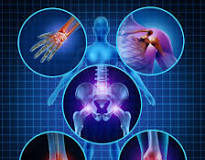
Advancing Musculoskeletal Health: The Role of Orthopedics in Modern Medicine
The Importance of Orthopedics in Maintaining Musculoskeletal Health
Orthopedics is a branch of medicine that focuses on the diagnosis, treatment, and prevention of disorders related to the musculoskeletal system. This system includes bones, joints, ligaments, tendons, muscles, and nerves that work together to provide structure, support, and movement to the body.
Orthopedic specialists are trained to address a wide range of musculoskeletal issues, from fractures and sports injuries to degenerative conditions like arthritis and osteoporosis. They use a variety of non-surgical and surgical interventions to help patients regain function, reduce pain, and improve their quality of life.
One of the key benefits of orthopedic care is its emphasis on personalized treatment plans tailored to each patient’s unique needs. Orthopedic surgeons work closely with other healthcare professionals such as physical therapists, occupational therapists, and pain management specialists to provide comprehensive care that addresses not just the symptoms but also the underlying causes of musculoskeletal conditions.
Preventive care is also an essential component of orthopedics. By promoting healthy lifestyle choices, proper nutrition, regular exercise, and ergonomic practices, orthopedic specialists help individuals reduce their risk of developing musculoskeletal problems later in life.
Whether you are an athlete recovering from a sports injury or an older adult seeking relief from joint pain, orthopedic care plays a crucial role in restoring mobility, function, and independence. By seeking early intervention and following a multidisciplinary approach to treatment, patients can achieve long-term musculoskeletal health and well-being.
In conclusion, orthopedics is a vital medical specialty that addresses the diverse needs of individuals with musculoskeletal conditions. Through comprehensive evaluation, personalized treatment plans, and preventive strategies, orthopedic specialists empower patients to lead active and fulfilling lives free from the limitations imposed by bone and joint disorders.
5 Essential Orthopedic Tips for Joint Health and Injury Prevention
- Maintain a healthy weight to reduce stress on your joints.
- Stay active with regular exercise to strengthen muscles and improve flexibility.
- Practice good posture to prevent back and neck pain.
- Use proper body mechanics when lifting heavy objects to avoid injuries.
- Wear supportive footwear to provide stability and cushioning for your feet.
Maintain a healthy weight to reduce stress on your joints.
Maintaining a healthy weight is crucial for reducing stress on your joints, a key tip in orthopedics. Excess body weight can put added pressure on the joints, particularly the knees, hips, and spine, leading to increased wear and tear over time. By staying within a healthy weight range through proper diet and regular exercise, individuals can alleviate strain on their joints, lower the risk of developing musculoskeletal conditions like osteoarthritis, and improve overall joint health and mobility. Prioritizing weight management is a proactive step towards preserving joint function and preventing future orthopedic issues.
Stay active with regular exercise to strengthen muscles and improve flexibility.
Staying active with regular exercise is a crucial tip for maintaining orthopedic health. Engaging in physical activity helps strengthen muscles, which in turn provides better support and stability to the joints. Additionally, exercise helps improve flexibility, reducing the risk of injuries and enhancing overall mobility. By incorporating a balanced exercise routine into your daily regimen, you can promote musculoskeletal health and enjoy a higher quality of life with improved strength and flexibility.
Practice good posture to prevent back and neck pain.
Practicing good posture is a simple yet effective tip to prevent back and neck pain, two common issues that can significantly impact daily life. By maintaining proper alignment of the spine while sitting, standing, and walking, individuals can reduce strain on the muscles and ligaments supporting the back and neck. Good posture not only helps alleviate existing discomfort but also serves as a proactive measure to prevent future musculoskeletal problems. Incorporating ergonomic adjustments in workspaces and being mindful of body positioning throughout the day can contribute to better spinal health and overall well-being.
Use proper body mechanics when lifting heavy objects to avoid injuries.
Using proper body mechanics when lifting heavy objects is crucial to prevent orthopedic injuries. By maintaining a stable stance, bending at the knees instead of the waist, and keeping the object close to the body, individuals can reduce strain on their muscles and joints. This technique helps distribute the weight more evenly and minimizes the risk of back pain, muscle sprains, or other orthopedic issues. Practicing safe lifting techniques not only protects the spine and musculoskeletal system but also promotes overall physical well-being and prevents unnecessary discomfort or injury.
Wear supportive footwear to provide stability and cushioning for your feet.
Wearing supportive footwear is a crucial tip in orthopedics to ensure proper stability and cushioning for your feet. The right shoes can help distribute weight evenly, reduce pressure on joints, and minimize the risk of injuries or discomfort. By choosing footwear that offers adequate arch support and shock absorption, you can promote better alignment and protect your feet from the strain of daily activities. Investing in quality shoes that prioritize both comfort and functionality is a simple yet effective way to maintain optimal foot health and overall musculoskeletal well-being.

